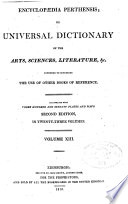 | Encyclopedias and dictionaries - 1816 - 746 pages
...of that number, multiplied by the exponent of the power ; alfo, that the logarithm of any root of a number is equal to the logarithm of the number divided by the exponent of the root. (42.) There may- be various fyftems of logarithms, according to the different... | |
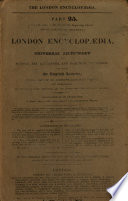 | Thomas Curtis (of Grove house sch, Islington) - 412 pages
...of that number, multiplied by the exponent of the power ; also, that the logarithm of any root of a number is equal to the logarithm of the number divided by the exponent of the root. 42. There may be various systems of logarithms, according to the different values... | |
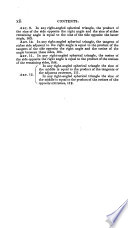 | George Darley - 1835 - 142 pages
...logarithm of the number multiplied by the index of the power, 8. AHT. 6. The logarithm of the root of any number is equal to the logarithm of the number divided by the index of the root, 9. . THE APPLICATION OF ALGEBRA TO GEOMETRY. DEF. The area of a figure is the .portion of space contained... | |
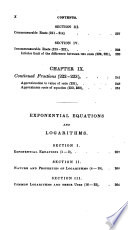 | Benjamin Peirce - Algebra - 1837 - 302 pages
...equation, it becomes log. p = n log. or , " log. n log. V>= -~n that is, the logarithm of any root of a number is equal to the logarithm of the number divided by the exponent of the root. 11. Corollary. The equation log. m m' = log. m -f log. m', gives log. m' = log.... | |
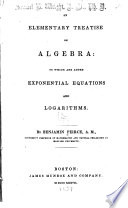 | Benjamin Peirce - Algebra - 1837 - 300 pages
...equation, it becomes log. p = n log. or " log. p log. VP = =3* that is, </ie logarithm of any root of a number is equal to the logarithm of the number divided by the expon ent of the root. 11. Corollary. The equation log. mm' = log. m -f log. m,, gives log. m, = log.... | |
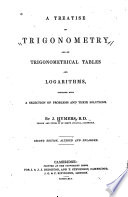 | John Hymers - Logarithms - 1841 - 244 pages
...where r is any number whole or fractional, positive or negative. 10. The logarithm of the root of any number is equal to the logarithm of the number divided by the index of the root. Since т ч cf, .: <t/m •» v/0* = ar, _ л i * * De V " / — V Oft r* TT 11. Hence, if we have... | |
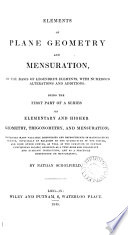 | Nathan Scholfield - 1845 - 894 pages
...denominator. III. Raise both members of equation (1) to the power of n. Nn =a" .-. by def. (2), nx is the logarithm of N ", that is to say, The logarithm of any power of a given number is equal to the logarithm of the number multiplied by the exponent of the power.... | |
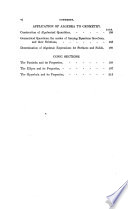 | Nathan Scholfield - Conic sections - 1845 - 244 pages
...denominator. III. Raise both members of equation (1) to the power of n. N" =a" .*. by def. (2), na; is the logarithm of N ", that is to say, The logarithm of any power of a given number is equal to the logarithm of the number multiplied by the exponent of the power.... | |
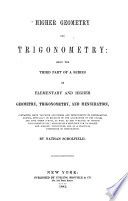 | Nathan Scholfield - Geometry - 1845 - 506 pages
...n. Nn — aM .*. by def. (2), nx is the logarithm of N n, that is to say, The logarithm of any power of a given number is equal to the logarithm of the number multiplied by the exponent of the power. IV. Extract the n* root of both members of equation (1). X... | |
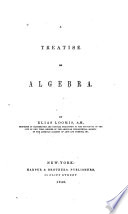 | Elias Loomis - Algebra - 1846 - 376 pages
...nth root of both members of equation (1), we shall obtain i therefore, according to the definition, - is the logarithm of N" ; that is to say, The logarithm of any root of a number, is equal to the logarithm of that number divided by the index of the root. EXAMPLES. Ex. 1.... | |
| |